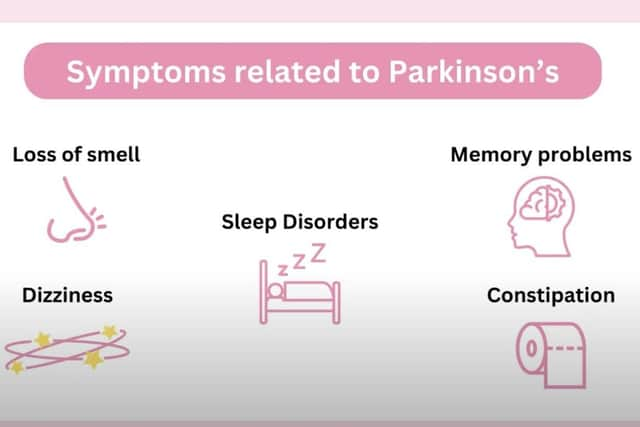Parkinson's Awareness Month: how much is the average cost of Parkinson's care in Derbyshire
and live on Freeview channel 276
1 in 37 people in the UK are living with Parkinson’s Disease - the fastest-growing neurological condition in the world.
With the cost of living continuing to increase, new research from Lottie (a care home marketplace) has found a 19 per cent increase in the cost of Parkinson’s care across Derbyshire over the last four years, totalling an average of £6,520 per hospital stay or admission—this is up from £5,475 in 2020.
Advertisement
Hide AdAdvertisement
Hide AdTo mark this year's Parkinson’s Awareness Month, Hannah Karim, Senior Care Expert Manager at Lottie, has shared the biggest misconceptions about Parkinson's you should avoid, including Parkinson’s symptoms and the most common age to be diagnosed with Parkinson’s disease.


“Living with Parkinson’s disease isn’t easy, and those diagnosed face many challenges in their daily lives. One of the biggest obstacles is dealing with the misconceptions and misunderstandings about Parkinson’s, as everyone experiences symptoms differently”, shares Hannah Karim.
“Stereotypes and myths can have harmful effects on those living with Parkinson’s disease. Incorrect beliefs about the capabilities of those with this condition can be extremely harmful to their quality of life, too. They may limit their engagement in activities, create a communication barrier, and affect how they feel about themselves.
It’s also important to educate yourself on the different stages of Parkinson’s: don’t assume they aren’t capable - it’s one of the biggest misconceptions that if you have Parkinson’s, you lose your independence. Anyone - with or without Parkinson’s - values their independence, so there’s no need for this to change,” concludes Hannah Karim.
Advertisement
Hide AdAdvertisement
Hide AdHere’s five Parkinson’s myths to avoid, according to a care expert:
Myth 1: ‘Only older adults are affected by Parkinson’s disease’
Whilst Parkinson's disease is more commonly diagnosed in older adults over the age of 60, it can affect people of any age, including younger adults. This misconception can delay diagnosis and treatment in younger adults who experience initial signs and symptoms of Parkinson’s.
No matter your age, it's important to visit your doctor if you start to experience unusual symptoms or develop any new health concerns.
Advertisement
Hide AdAdvertisement
Hide AdMyth 2: ‘Everyone living with Parkinson’s experiences the same symptoms’
Those Living with Parkinson’s will experience symptoms, progression of the disease and response to treatment that are unique to them. Some people living with the condition may experience relatively mild symptoms that progress slowly over many years, while others may experience more rapid progression.
When caring for someone with Parkinson’s, it’s important to understand their specific care needs to help them to live as independently as possible.
Myth 3: ‘Parkinson’s disease only affects movement’
Parkinson’s is a progressive neurological condition; the most common symptoms reported by those living with the condition are uncontrollable shaking, difficulty moving, and muscle stiffness.
Advertisement
Hide AdAdvertisement
Hide AdEach person living with Parkinson’s will experience different symptoms and some people can experience non-motor symptoms, such as cognitive changes, like depression and anxiety, and changes to sleeping cycles. As well as physical symptoms such as problems with blood pressure regulation.
Myth 4: ‘You can’t live independently when you have Parkinson’s disease’
While Parkinson's may present challenges, it does not mean losing the ability to live independently.
Many people with Parkinson's disease continue to live independently for years after diagnosis. Through managing symptoms with medication, therapy, and small lifestyle changes, those living with Parkinson's can continue to live a fulfilled and independent life.
Advertisement
Hide AdAdvertisement
Hide AdMyth 5: It’s appropriate to describe those with Parkinson’s as ‘suffering’
The way we communicate and talk about Parkinson’s has a direct effect on how people living with this condition feel. Using phrases like ‘suffering from Parkinson's’ or ‘a victim of Parkinson’s’ is negative and can have a profound impact on the person with Parkinson’s, as well as their loved ones.
Instead, use respectful language to show that Parkinson’s isn’t a defining aspect of their life. For example, say' a person with Parkinson’s disease’ or ‘living with Parkinson’s’.